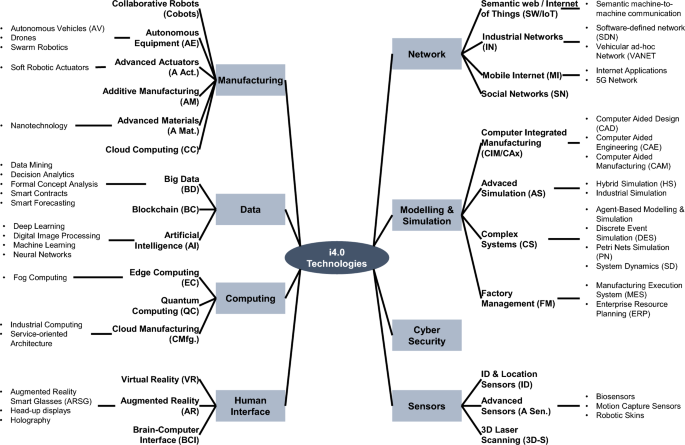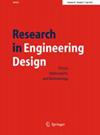Analysing Industry 4.0 technology-solution dependencies: a support framework for successful Industry 4.0 adoption in the product generation process
IF 1.9
3区 工程技术
Q3 ENGINEERING, INDUSTRIAL
引用次数: 0
Abstract
Abstract Industry 4.0 (i4.0) is central to advanced manufacturing. Building on novel digital technologies, it enables smart and flexible manufacturing with systems connected across company boundaries and product lifecycle phases. Despite its benefits, the adoption of i4.0 has been limited, especially in small and medium-sized enterprises. A key challenge is the technological complexity of i4.0. While advanced functionality requires technological complexity, it complicates an understanding of which enabling technologies are particularly useful and required. This article presents a framework to support successful i4.0 adoption across the entire product generation process through a systematic matrix-based dependency analysis of i4.0 solutions and underlying i4.0 technologies. Through increasing transparency around technological complexity of i4.0 solutions, this research contributes to a better understanding of which technologies are required for specific i4.0 solutions and which technologies could be strategic enablers for a broad variety of i4.0 applications. Knowing these technological dependencies supports both, the systematic adoption of existing i4.0 solutions and the development of new i4.0 solutions. This also sets the basis for a future socio-technical investigation.

分析工业4.0技术-解决方案依赖性:在产品生成过程中成功采用工业4.0的支持框架
工业4.0 (i4.0)是先进制造业的核心。它以新颖的数字技术为基础,通过跨公司边界和产品生命周期阶段的系统连接,实现智能和灵活的制造。尽管有诸多好处,但工业4.0的采用仍然有限,尤其是在中小型企业中。一个关键的挑战是工业4.0的技术复杂性。虽然高级功能需要复杂的技术,但它使理解哪些启用技术特别有用和必要变得更加复杂。本文提供了一个框架,通过对工业4.0解决方案和底层工业4.0技术进行系统的基于矩阵的依赖性分析,支持在整个产品生成过程中成功采用工业4.0。通过提高工业4.0解决方案技术复杂性的透明度,本研究有助于更好地理解特定工业4.0解决方案需要哪些技术,以及哪些技术可以成为各种工业4.0应用的战略推动者。了解这些技术依赖关系有助于系统地采用现有的工业4.0解决方案和开发新的工业4.0解决方案。这也为未来的社会技术调查奠定了基础。
本文章由计算机程序翻译,如有差异,请以英文原文为准。
求助全文
约1分钟内获得全文
求助全文
来源期刊

Research in Engineering Design
工程技术-工程:工业
CiteScore
7.80
自引率
12.50%
发文量
23
审稿时长
18 months
期刊介绍:
Research in Engineering Design is an international journal that publishes research papers on design theory and methodology in all fields of engineering, focussing on mechanical, civil, architectural, and manufacturing engineering. The journal is designed for professionals in academia, industry and government interested in research issues relevant to design practice. Papers emphasize underlying principles of engineering design and discipline-oriented research where results are of interest or extendible to other engineering domains. General areas of interest include theories of design, foundations of design environments, representations and languages, models of design processes, and integration of design and manufacturing. Representative topics include functional representation, feature-based design, shape grammars, process design, redesign, product data base models, and empirical studies. The journal also publishes state-of-the-art review articles.
 求助内容:
求助内容: 应助结果提醒方式:
应助结果提醒方式:


